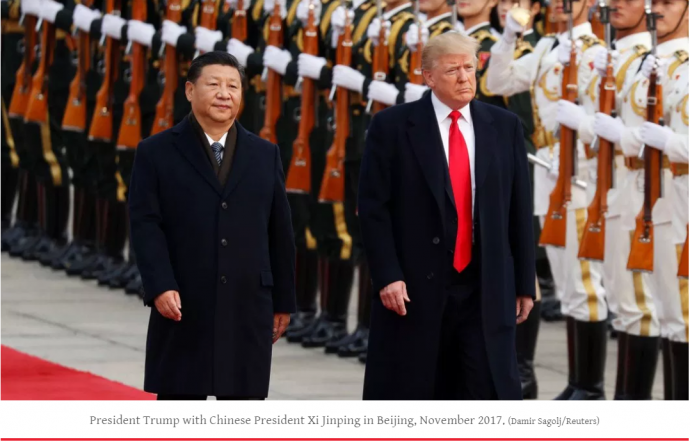Here is Victor Davis Hanson writing about the pre-Trump world:
The ‘unpresidential’ outsider disrupted America’s transformation into a ‘lead from behind’ nation.
Much of the controversy that surrounds the policies of Donald Trump can be explained as a reaction to the past. He was either clumsily disrupting the sacrosanct or trying to resurrect what was lost.
In other words, what you feel about Trump is inseparable from what you think of the world before Trump.
Was the status quo, especially in the years between 2009 and 2017, normal or abnormal — at least compared with the prior half century?
Take the challenge of China. We are now locked in a veritable trade war with the Chinese. Each side escalates with a threatened new round of tariffs. The subtexts of the conflict range from Chinese military ascendency to patronage of nuclear North Korea.
Is Trump creating unnecessary conflicts ex nihilo, or trying to address what was an abnormal, one-sided assault at which most prior presidents had shrugged their shoulders?
Certainly, China is a proven systematic trade cheater. Given its size and clout, traditional international means of rectifying such massive violations had proven impotent.
Beijing never has believed in either free or fair trade. Instead, at worst, it assumed that deluded Westerners in Europe and the U.S. would appease China. “Live with it” was the unspoken shrug from the West.
At best, as a post-revolutionary, reforming, and still-troubled power, China felt it deserved exemptions from normal behavior. The Western conventional wisdom was mostly to placate and coax China now; and then, soon, when rich and powerful, in gratitude, Beijing would either willingly democratize or the sheer power of its free-market opulence would transform it into a sober and judicious player on the world stage.
Meanwhile, China freely strong-armed Western companies inside China. It ran up huge trade surpluses by way of dumping, conducting technological espionage, ignoring health and safety norms, levying asymmetrical tariffs, and mocking copyright and trademark treaties.
Read more: National Review

